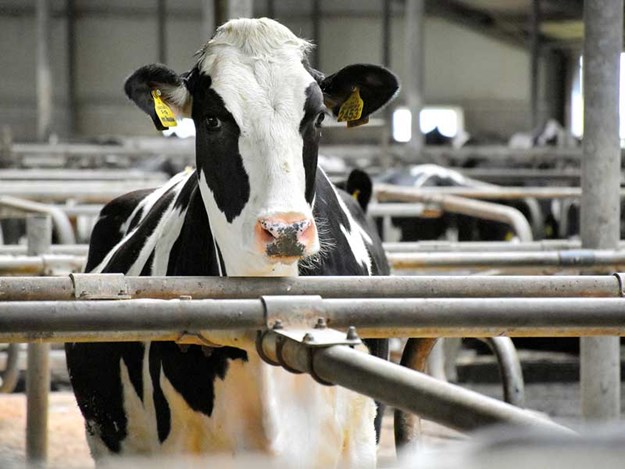New skin tests developed in breakthrough against bovine TB
Welsh scientists have developed two new skin tests for cattle that have the potential to help fight the global battle against bovine TB
Research by two scientists from Aberystwyth University has helped formulate two tests for the ravaging cattle disease, one that can detect if an animal is infected with bTB and the other that can detect if the animal has been vaccinated against it.

The combination of the essential proteins, which enable the differentiation between vaccinated cattle and positive cases of bTB, was established by the teams of Professor Glyn Hewinson and Professor Martin Vordermeier of Aberystwyth University while working at the Animal and Plant Health Agency.
Building on their work, the two skin tests have been created by an international team of scientists from Ethiopia, India, the Netherlands, the UK, and the US.
First published in the July 2019 issue of Science Advances, the project has been supported by the Bill and Melinda Gates Foundation, the UK Government’s Department for Environment, Food and Rural Affairs (Defra), the Welsh Government, and the Scottish Government.
Traditionally, bTB tests carried out on cattle show a positive result for cows that have the disease as well as those that have been vaccinated against it.
Developed in the early 1900s from the bacterium that causes TB in cattle, the vaccine has remained largely unused to vaccinate cattle and it’s prohibited throughout the European Union as well as in the US and many other countries.
By distinguishing between vaccinated and infected cattle, the new tests will facilitate the implementation of vaccination programmes globally that could considerably reduce the transmission of this infectious bacterial disease from cattle to humans.
The new test will now have to be evaluated in field trials to a level recommended by the World Organisation for Animal Health (OIE).
Safety and regulatory aspects of the new tests will also have to be evaluated and studies into this are already under way in the UK and India.
Professor Glyn Hewinson leads the newly established Centre of Excellence for Bovine TB at Aberystwyth University. This centre is backed by Ser Cymru II, which is funded by Welsh Government, the Higher Education Funding Council for Wales, participating Welsh Higher Education institutions, and the European Regional Development Fund through Welsh Government.
Professor Hewinson says, "We have worked for more than 20 years on developing vaccines and diagnostic tests for bovine tuberculosis. It would be wonderful if either of these tests succeeds in bringing about significant improvements in the control of bovine TB globally.
"Such a development would represent the culmination of a great deal of work by dedicated and talented scientists from around the world and a significant step forward in our efforts to control this disease.
"These tests have been developed as a consequence of elucidating the genetic composition of the bacteria that causes bovine TB and a considerable number of studies on how cattle respond to TB infection and vaccination.
"These are areas of investigation that we will continue here at the Centre of Excellence for Bovine TB at Aberystwyth University."
Professor Martin Vordermeier adds, "Development of these tests is a crucial step on the long and challenging journey to implement cattle TB vaccine programmes to reduce the burden of this intractable disease.
"Without such tests, traditional test and slaughter control strategies could not be pursued alongside vaccination, nor could vaccine efficacy and disease prevalence be effectively monitored in vaccinated animals in countries where such control strategies are unaffordable or societally not acceptable.
"I am very privileged to be on this journey in the company of so many dedicated colleagues from so many countries."
Find farm machinery for sale in NZ
Keep up to date in the industry by signing up to Farm Trader's free newsletter or liking us on Facebook

.jpg)

.jpg)
.jpeg)












